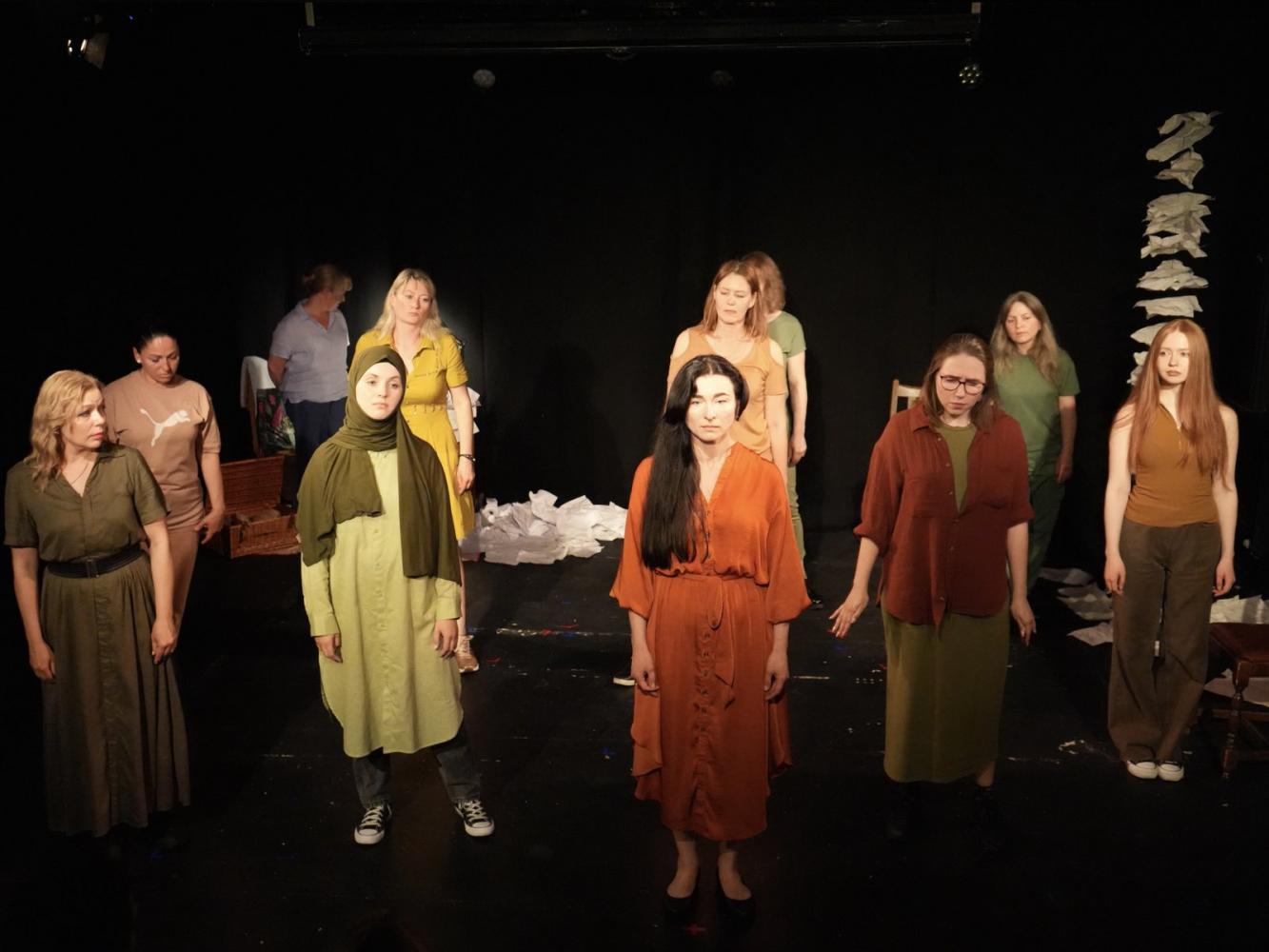Waiting for the Tides to Turn
Still Here - Waiting for the Tide to Turn
By Neelanjana

‘Still Here’ by amateur drama group Unique Community brings its audience to tears with its strong idea of hope hiding in a forest of anguish. In a small dark room with a few benches and great acoustics under the Arches at Putney Bridge, this play takes the viewer through the experience of Ukrainian refugees who have fled to London during the war, who have little to do except wait and hope things become better. When asked if “it hurts” by a character, Max (Denys Sadovoi), who symbolises Londoners who want to help but don’t know how, the Ukrainians reply with nothing but a repetition of, “everywhere, everywhere, everywhere.” The state of limbo they are in is represented as a waiting room, where the ‘doors are always open, and you can leave any time you want’.
This waiting room is where the characters become a family, where they forge camaraderie with people in other waiting rooms – such as the Afghani room – people from different parts of the world that they share experiences with.
There is an abundance of music in this play, such as the moving song in which they refer to the tumultuous times they’ve lived in and have escaped from, with a simple line, “everything can change in a second but I’m still here”. Nadiia Sychuk’s strong operatic solo sent shivers down our spines. Her stamina and powerful voice paired with the melancholic tune, juxtaposed with the happy miming of familial scenes behind her, does nothing to quell the rise of emotion in the audience.
The methodic and well thought out use of lighting by the crew off-stage also has a hand in bringing life to this piece. The harsh yellow light fades into a cool blue during song, or a bright white snaps into a green when a character has an idea, thus drawing out the viewer’s subconscious and getting the full attention of the audience.
The children in the cast also play a crucial role. Not only in scenes where they are pushed away because they are ‘too young,’ but also in seemingly lighthearted scenes, such as when they play video games but appear to be in the game, saying things like, “why are they blasting my place, why can’t they go blast their own?” and “who stole all my coins?” and one child wildly gesturing to his throat, indicating that he’s lost his voice and can’t speak, allegorising the realities of their own country. Max, the Londoner, is at a loss for words when trying to fathom the idea of not being able to speak what is on your mind and be who you are.
Towards the end of the play, the character of Olesia played by Anna Gyvel has a stunning solo in which she sings about freedom, heartfelt sadness apparent on her face. Her strong voice and vibrato carries her words across the small room, “my only dream is to go home”.
- Callout: Wandsworth Arts Fringe 2025 Associate Producers
- Serene Sounds: A Classical Sound Bath Experience Review
- In Secret Dens Review
- Full(y) English Review by Hilary
- Go Back for Murder Review




